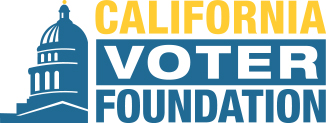'It’s trying to vote-shame people into voting, and that’s just not the way to go'
Excerpt:
SACRAMENTO, Calif. (KCRA) —
There is outrage this week from California voters and voter advocates after a controversial mailer showed up just days before a special election.
The mailers come from a group called the Northern California State Voter Project, but there’s no website and no phone number for the promoters, whose only known address is a post office box.
The mailer threatens to reveal people's voting history to friends, family and neighbors.
“I was really upset," said Susan Strand, a voter in El Dorado County. “I felt violated."
Strand showed KCRA 3 the letter she received from Northern California State Voter Project.
The letter includes a chart with names showing her who voted in her neighborhood and who did not -- with an warning that her name might be on the list if she fails to vote in the upcoming special election for California Senate on June 4.
“I did not know that some of our information is available to the public,” Strand said. “But I really felt like this was an invasion of my privacy.”
The address for the Northern California State Voter Project is just a post office box at the West Sacramento post office, where ownership records are considered confidential.
But the group’s hidden message of outing nonvoters is troubling to Kim Alexander, president of the California Voter Foundation.
“It’s telling voters: 'We’re watching you. We know if you’re voting. We know if your neighbors are voting.' And it’s trying to vote-shame people into voting, and that’s just not the way to go.”
“We have very strong disclosure laws in California,” Alexander added. “But this mailer apparently is able to skirt those laws because it doesn’t actually say to vote for one candidate or another."
The state Assembly is the battleground for Senate District 1, where Brian Dahle and Kevin Kiley, both Republicans, are vying for an empty seat vacated by Ted Gaines.
The Kiley campaign denied any involvement in the mailers.
The Dahle campaign did not return phone calls to KCRA 3.
And while it’s not clear who sent the anonymous mailers, California’s top elections official, Alex Padilla, sent KCRA 3 a statement, proclaiming, “The Secretary of State’s Office is reviewing whether this mailing violates state election law.”
Whoever is sending the mailers is spending a lot of money, according to Paul Mitchell, vice president of Political Data, a bipartisan data vendor.
----
Political campaigns are allowed to buy voter databases, and so are journalists and academic researchers, according to the secretary of state’s office.
The records won’t show who you voted for, but the database does reveal whether you voted in a specific election or chose not to vote.
The secretary of state’s office told KCRA 3 that voters have a right to vote without intimidation. Anyone receiving election materials that are suspicious is urged to file a complaint with the secretary of state or local elections officials. (full story)

